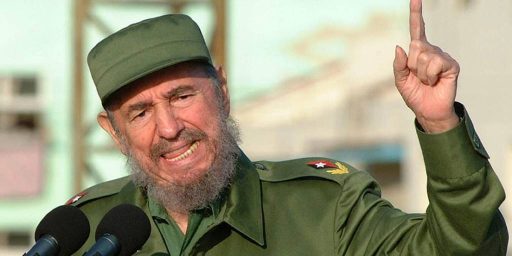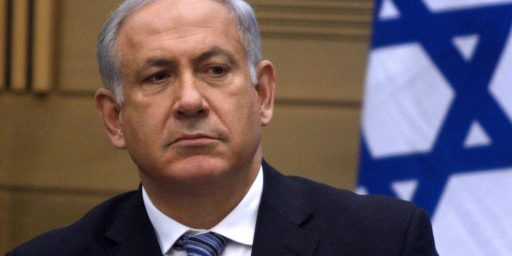LANGUAGE OF INTERNATIONAL RELATIONS
Claudia Rosett has an excellent piece in the WSJ about our choice of words:
Foreign policy debates have hardly been muted in recent months, but with the United Nations now back in session, there’s a lot more verbiage on the way. One of the treacherous aspects of this war we are now fighting is the strange, officious vocabulary, often hollow and sometimes wrong, with which we have been wrangling over matters of life and death. Surrounded by the efficiencies of the digital age, we nonetheless drag into the political arena big stacks of moldy baggage from which we then unpack the verbal equivalents of a great white elephant show–titles, phrases and metaphors so warped or cumbersome they cannot at the same time haul their own weight and carry any real meaning.
She lists several re-definitions of terms. My favorite:
President or Prime Minister. These titles, customary and seemingly harmless, we unthinkingly accept from anyone who occupies the top slot of government in a sovereign nation. It’s also standard newspaper style. But while in free nations such titles connote democratic leadership, in unfree nations they denote nothing of the kind. It would be a useful check on our more deferential instincts were we to use titles tied less to custom than to accuracy. For example: Taiwan has a president, England has a prime minister. Egypt has a dictator, Libya has a tyrant. Greeting some of the world’s worst thugs as Mr. Dictator, or Honorable Despot, might sound peculiar, but it might also help keep the realities in view.
Hat tip: Robert Prather






I think we should add the modifiers “our dictator” and “their tyrant” to be even more crystal clear about the arrangements. They don’t appear out of no where, you know. There’s a massive amount of history here.
For example, where would Egypt be without the 1.3 billion dollars of military aid we give them each year? I’m sure that this has nothing to do with the dictator keeping power, right?
And Kuwait! We even went to war to keep those guys in power.
So, interesting suggestion of Claudia’s. Too bad it falls far short of the accurate description she desires.
—